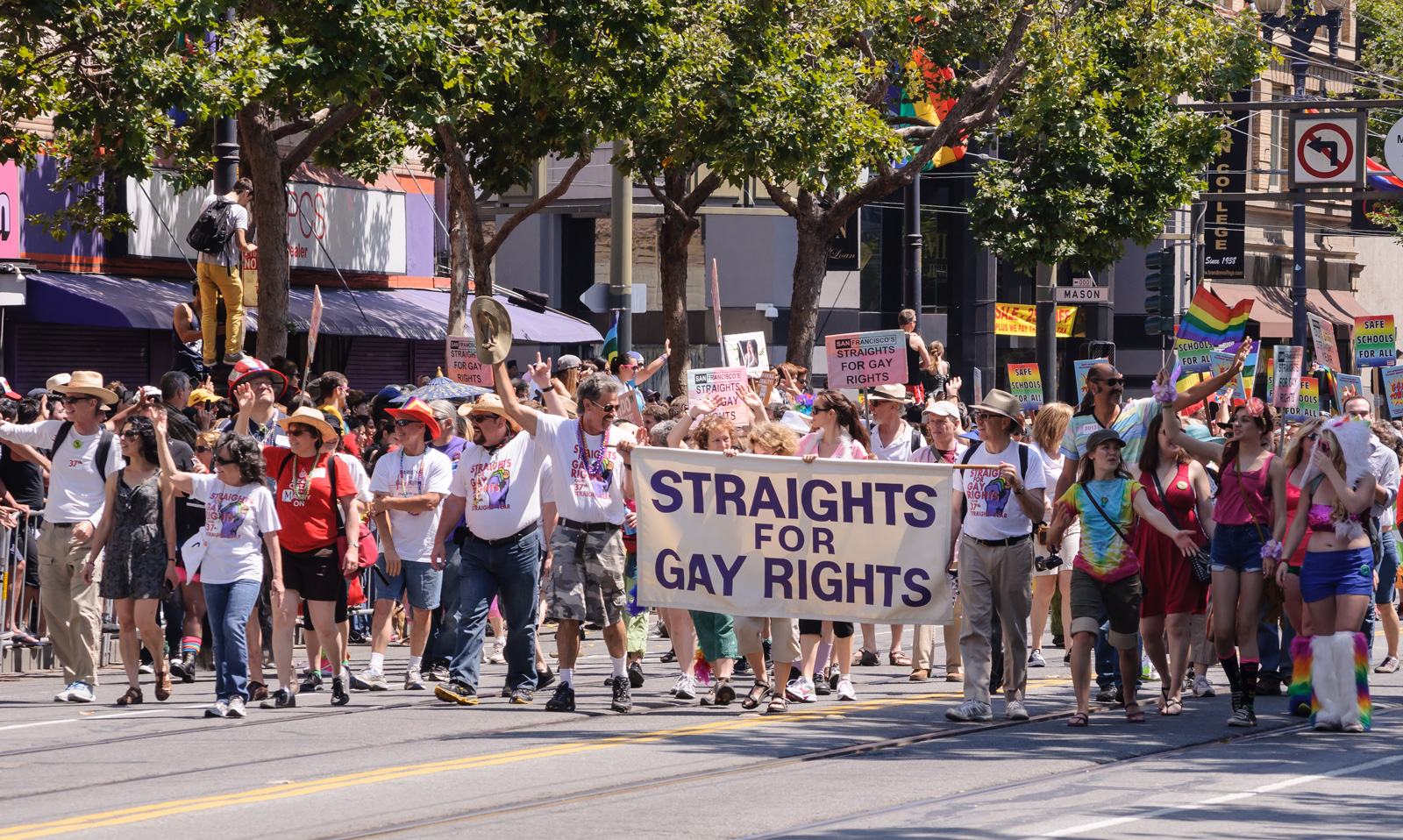The geopolitics of sexuality

(Heterosexual supporters for gay rights at San Francisco Pride in 2013)
Jacob Sagers – The United States Congress’s bill to codify same-sex marriage into law in December, with President Biden’s signature, marks a historic shift in attitude towards the LGBTQ+ community, not just in the U.S. but internationally. However, the march for gay rights has not been smooth and has plenty of work left. Nevertheless, the gay rights movement has gained significant ideological power as a non-state actor in recent decades.
Ideological power is the ability to have others do what you want without force and willingly. This can apply to countries, groups, or individuals. Internationally, the first steps towards legalizing same-sex marriage and LBGTQ+ nondiscrimination laws started with France decriminalizing homosexuality in 1791. Some countries followed suit slowly in the next centuries until the 1960s when gay rights and liberation movements was born after Stonewall in the U.S. The movements goals were not just for equality but frequently for destigmatizing LGBTQ+ individuals in society and soon spread to Western Europe. Resistance to police brutality, gay pride parades, and activism shaped the international movement in the coming decades. The removal of homosexuality as a mental disorder by the American Psychiatric Association in 1971, the Netherlands being the first country to legalize same-sex marriage in 2001, and thirty-three countries currently recognizing it showcases its success internationally at achieving its goals without force. The change is not just a Western phenomenon; it has taken root in Latin America, South Africa, and Taiwan. LGBTQ+ rights has gained considerable ideological power domestically and within geopolitics, dictating many countries’ foreign policy.
The transition and diffusion of ideological power was not always smooth. The eruption of the AIDS epidemic worldwide in the 1980s, Russia and Hungary’s recent anti-gay laws, and death penalties/illegal statuses throughout the Middle East and Africa exhibit sizeable challenges to Gay Rights Movements internationally. Nevertheless, groups in the West relied on gay individuals coming out and sharing their stories nationwide to help shape public opinion. Ultimately, it gained success as most Western countries have legalized same-sex marriage, recognized civil unions, or enacted non-discrimation laws. This would have been unfathomable in the last decade, but ideological power has changed states policies. Whether gay rights continue to gain influence and acceptance influence everywhere, however, is uncertain.

